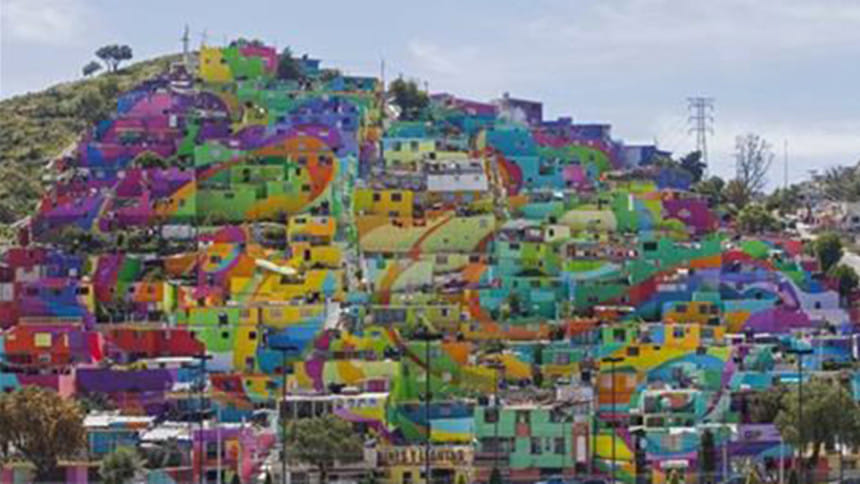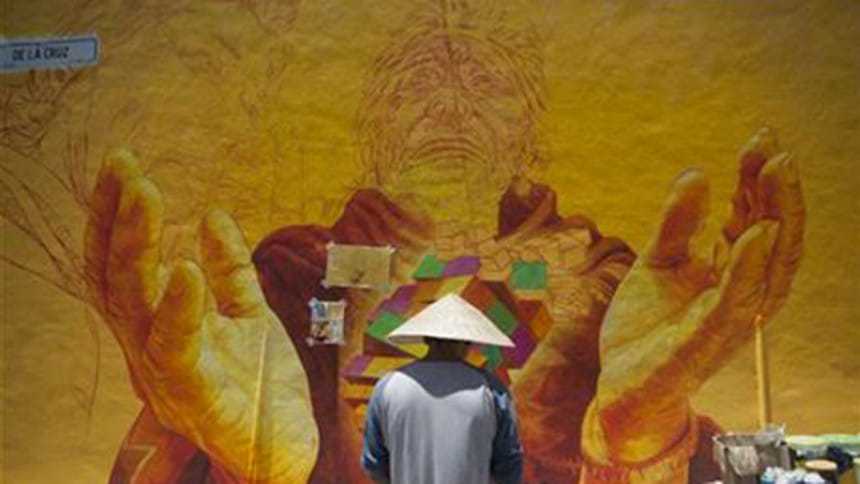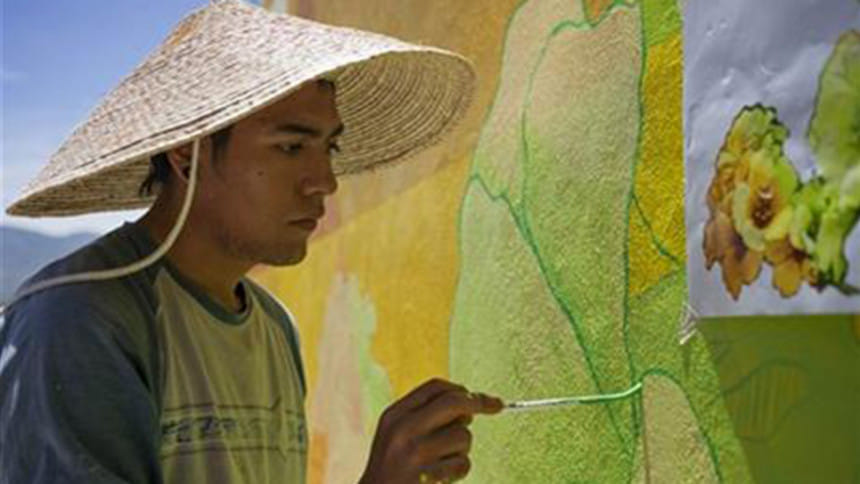Working-class barrio turns into huge rainbow mural in Mexico

A community project in central Mexico is bringing art to people's homes. Literally.
A group of artists known as the Germ Collective have spent 14 months turning the hillside neighborhood of Las Palmitas into a giant, colorful mural in an effort to bring the working-class "barrio" together and change its gritty image.
Working hand-in-hand with residents, muralists have painted the facades of 200 homes bright lavender, lime green, incandescent orange — hues more commonly found in a bag of Skittles than in the drab, cement-and-cinderblock neighborhoods where many of Mexico's poor live.
Seen from afar, the individually painted houses combine to form a cohesive, if abstract, swirly rainbow design. Bright stripes that begin on one wall run across several homes before swooping into graceful curlicues.
It's an homage to the wind: the city of Pachuca is nicknamed "la bella airosa," a Spanish phrase that loosely translates as "the beautiful breezy city."

Project director Enrique Gomez said the goal is to promote community integration and change the negative image of the neighborhood.
"I never thought we would have such a big impact," said Gomez, a tattooed and goateed former gang member who turned his life around when he rededicated himself to graffiti art and muralism.
Before, he said, Las Palmitas was a sketchy area where people avoided going out after dark or interacting with each other. But as the project nears its final stages, you see people talking to each other more, children hanging out on the steep stairways that cut through the neighborhood.
"Honestly, what surprises me the most is that people are really changing," Gomez said. "They are growing, there is more community spirit. People are taking the security of their neighborhood into their own hands."
The city government-sponsored project began with persuading homeowners to let their homes be painted, followed by a whitewashing of each building to symbolize that all the residents are equal. The art collective tapped locals, some of them gang members, to cover the houses with more than 5,000 gallons (20,000 liters) of paint.

"It's very satisfying," said Alfonso Reyes, a construction worker who lives in Las Palmitas. "In the morning you wake up and look around and see the colors that surround you. It's very pretty. You go out and say, 'Ah, everything is so nicely painted and fixed up.'"
In its final stage, artists are painting more than 16,000 square feet (1,500 square meters) of murals along the narrow streets.
Reception of the "Pachuca Paints Itself" project has been so positive that plans are in the works to paint another poor neighborhood, the nearby Cubitos.

 For all latest news, follow The Daily Star's Google News channel.
For all latest news, follow The Daily Star's Google News channel. 



Comments